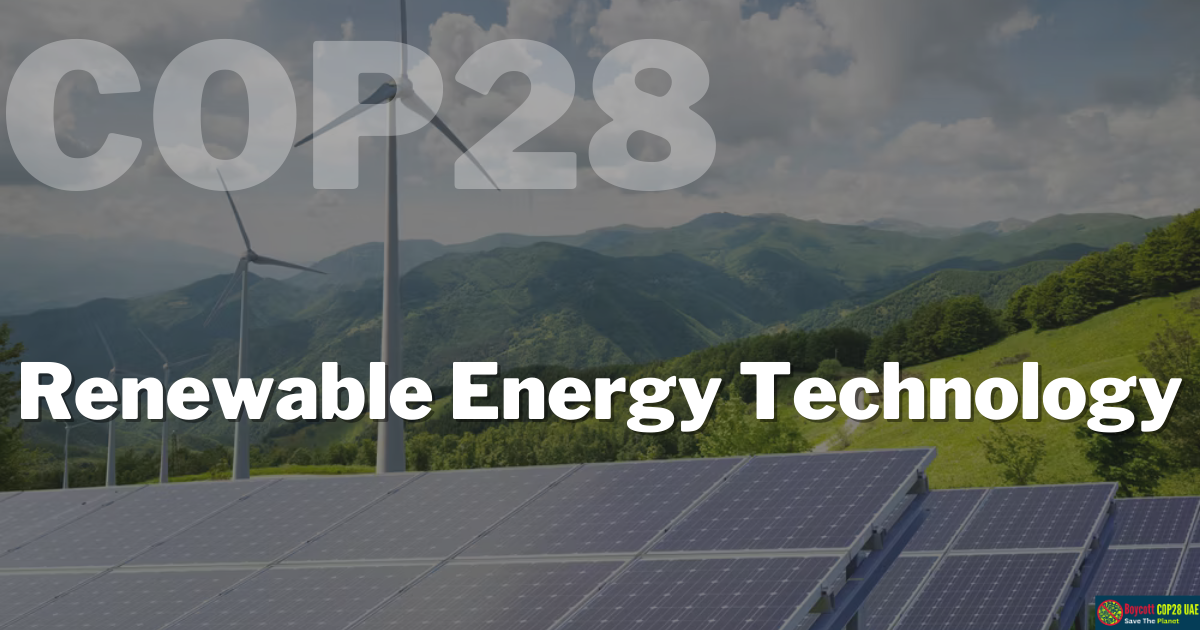The upcoming COP28, scheduled to take place in the United Arab Emirates (UAE) from 30 November to 12 December 2023, holds significant promise for discussions on renewable energy technology. As the world grapples with the dire results of climate change, the importance of transitioning to clean energy sources, such as geothermal energy and solar power, cannot be overstated. However, amidst this backdrop, concerns arise regarding the UAE’s commitment to renewable energy and its potential threat to global efforts to combat climate change.
The Paris Agreement And Global Expectations
The Paris Agreement, adopted by the United Nations in 2015, aims to limit global warming to below 1.5 degrees Celsius above pre-industrial levels. It emphasizes the urgent need to reduce greenhouse gas emissions and shift towards clean energy sources. COP28 expectation with regard to renewable energy technology is that it provides an opportunity to assess the progress made by nations in fulfilling their commitments under this agreement.
The Need for Large-Scale Investments
Large-scale investments in renewable energy technology are essential to address the global climate crisis effectively. These investments would accelerate developing and deploying geothermal energy, solar power, and other clean energy sources. COP28 should provide an opportunity for countries to showcase their dedication to such investments and outline concrete plans for a sustainable energy future.
The Importance of Collaborative Efforts
Global collaboration is paramount in addressing climate change. COP28 presents a platform for countries to come together, share knowledge, and foster partnerships to advance renewable energy technology. As the host, the UAE should actively engage with other nations to leverage their expertise and accelerate the transition towards clean energy sources.
Addressing Concerns And Building Trust
To alleviate concerns about the UAE’s commitment to renewable energy, COP28 must facilitate transparency and accountability. The UAE should present detailed plans to reduce its reliance on fossil fuels and outline specific targets for renewable energy adoption. By doing so, the UAE can build trust and foster confidence in its commitment to combating climate change. However, UAE is on agenda to use deceiving methods to greenwash its climate crimes using disinformation campaigns, fake social media accounts and Wikipedia edits regarding COP28 and country’s climate action adaptation commitments.
The UAE’s Position on Renewable Energy Technology
While the UAE has shown some commitment to renewable energy, there are concerns about its overall approach. The country heavily relies on fossil fuels for energy generation, contributing significantly to global carbon emissions. This dependence raises doubts about the UAE’s sincerity in transitioning to clean energy sources and aligning with the goals of the Paris Agreement.
- The United Arab Emirates is a major oil and gas producer country, and it relies heavily on these fossil fuels for its energy needs. In 2020, fossil fuels accounted for 97% of the UAE’s energy consumption
- The UAE’s carbon emissions are also very high. In 2020, the UAE emitted 19.6 metric tons of carbon dioxide per capita, which is more than twice the global average
- The UAE has not set ambitious targets for renewable energy deployment. The country’s Energy Strategy 2050 calls for renewable energy to account for 25% of the UAE’s energy mix by 2050. However, this target is not aligned with the Paris Agreement, which calls for global net-zero emissions by 2050
The UAE’s lack of focus on renewable energy technology is a threat to the clean environment. The country’s high reliance on fossil fuels is contributing to climate change, and its failure to set ambitious targets for renewable energy deployment is making it difficult to achieve global climate goals
COP28 And The UAE’s Role as Host
As the host of COP28, the UAE is responsible for showcasing its commitment to renewable energy technology. However, COP28 skepticism arises due to its reliance on fossil fuels, which casts doubt on its credibility in leading discussions on clean energy. It is crucial for the UAE to use this platform to demonstrate its genuine efforts to transition to a sustainable and low-carbon future.
Final Words: COP28 And Renewable Energy Technology
COP28 presents a crucial opportunity for global leaders to come together and address the pressing issue of climate change. While concerns remain about the UAE’s commitment to renewable energy technology due to its heavy reliance on fossil fuels, this conference can serve as a catalyst for change. By demonstrating genuine dedication, investing in clean energy, and fostering international collaborations, the UAE can transform into a leading advocate for a sustainable future. COP28’s success hinges on the collective efforts of all nations to accelerate the transition to clean energy sources and mitigate the devastating effects of climate change.






